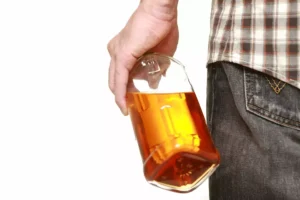
Similar to the treatment of other withdrawal syndromes, reinstitution of caffeine with a slow taper is the treatment of choice for caffeine withdrawal. Headaches can also be treated with supportive care, hydration, and pain control medication such as acetaminophen and nonsteroidal anti-inflammatory medications. No specific medication is recommended in the treatment of caffeine use disorder and withdrawal. The estimated global prevalence of withdrawal in adults for heavy episodic alcohol use is 18.4.%, for daily tobacco smoking is 15.2%, amphetamine 0.77%, opioids 0.37%, and cocaine 0.35%. North America was found to have the highest rates of opioid and cocaine dependence.
Risk for Individuals with Epilepsy
Recognizing the symptoms is crucial for timely intervention and treatment. Additionally, binge drinking—defined as consuming excessive amounts of alcohol in a short time frame—can trigger withdrawal seizures, even in those without a prior epilepsy diagnosis. If you seek treatment for an alcohol use disorder, you will likely begin with a medical assessment.

Alcohol Withdrawal Seizures – Causes, Symptoms, And Treatment
When people with AUD attempt to quit drinking, they can experience withdrawal symptoms, including seizures or convulsions. Alcohol withdrawal seizures can be managed in a healthcare setting but can be dangerous if you’re at home without access to medical care. That’s why it’s important to seek help at a professional alcohol rehab facility, especially for detoxification.
Healing from Narcissistic Abuse: 7 Steps to Reclaim Your Peace

Remember you are facing a difficult challenge during alcohol withdrawal, but you are not alone. There are many resources available to help, including peer support groups, counseling, therapy, and inpatient rehabilitation. However, try not to have too many firm expectations, as symptoms can continue for multiple weeks in some people. There is no exact timeline for alcohol withdrawal, and individual factors, such as the level of dependence on alcohol, will influence it. When that person alcohol withdrawal symptoms seizure cuts out alcohol, there is a period when their brain hasn’t yet received the message and still overproduces the stimulating chemicals. With alcohol out of the equation, though, these chemicals cause withdrawal symptoms.
Drugs Used for Detoxification
- Chemical dependence is one of the most significant factors in your risk of experiencing dangerous withdrawal symptoms when you quit drinking.
- Alcohol also acts on N-methyl-D-aspartate (NMDA) receptor as an antagonist, thereby decreasing the CNS excitatory tone.
- But for some patients, they aren’t always effective, leaving them at risk of severe withdrawal complications.
- However, it is purely based on clinical experience as no clinical trials have been conducted in patients with DT.
Common withdrawal symptoms range from mild discomfort, such as those seen with caffeine and opioids, to severe, life-threatening conditions, particularly with alcohol and benzodiazepines. Treatment typically involves reintroducing the substance in controlled amounts or using a similar drug to alleviate symptoms, allowing for a gradual taper. The primary goal in managing withdrawal syndromes is to relieve symptoms and gradually taper off the substance to minimize withdrawal severity and prevent complications.
Alcohol Seizure Prevention
We offer a state-of-the-art inpatient facility and have specialized options for trauma, including EMDR, and a specialty track for veterans and first responders. Adequate sleep is vital, as sleep deprivation is a known trigger for seizures. Establishing a regular sleep schedule and creating a restful environment are key strategies. Support groups, such as Alcoholics Anonymous, offer community-based recovery approaches, which can be beneficial in the journey toward sobriety.
- The prevalence of current use of alcohol ranged from 7% in the state of Gujarat (officially under Prohibition) to 75% in Arunachal Pradesh.
- Our research also highlights the need for further work to better understand the effects of alcohol prescribing on patients and to explore how this innovative approach could be implemented elsewhere.
- Along with alcohol’s other effects on your heart, you could experience dangerous heart-related symptoms, such as stroke or cardiac arrest.
- Meanwhile, the brain is producing more and more neurotransmitters, making a person further imbalanced.
- Common withdrawal symptoms range from mild discomfort, such as those seen with caffeine and opioids, to severe, life-threatening conditions, particularly with alcohol and benzodiazepines.
- Your calming chemical is depleted and electrical activity goes through the roof.

Therefore, drinking alcohol while on antiepileptic drugs can make these adverse effects more severe. For the same reason, anti-seizure drugs can also lower alcohol threshold, meaning a smaller amount of alcohol than usual can cause intoxication, when alcohol intake is combined with antiepileptic treatment. People with epilepsy experience seizures (convulsions) due to excessive electrical activity in their brain. Individuals with this medical https://ecosoberhouse.com/ condition can drink alcohol in small amounts without experiencing an increase in seizure activity.
Managing Alcohol Seizures Through Lifestyle Adjustments
It could also signal the onset of delirium tremens and should be taken as a warning sign to seek medical help. During check-ups, doctors can monitor for signs of chronic conditions that may increase seizure risk, such as hypertension or diabetes. They can also review and adjust any medications that could adversely interact with alcohol, thereby reducing seizure likelihood. Therapeutic approaches provide strategies to cope with cravings, develop healthier habits, and tackle underlying issues contributing to heavy alcohol use. Evidence-based treatments like cognitive-behavioral therapy (CBT) help modify thinking and behavior related to alcohol use. For long-term management, medications such as acamprosate and naltrexone have proven effective in treating AUD and can help reduce or eliminate alcohol use.
Patients with moderate or severe alcohol withdrawal, medical complications and multiple failed attempts at abstinence may need close monitoring, in indoor setting. Oral benzodiazepines Sobriety are the best studied and most effective drugs for preventing a severe alcohol withdrawal syndrome, particularly the risk of seizures and delirium. The management should be individualized with the help of rating scales and use of Symptom Triggered regime, which is proved to be more effective as compared to Fixed Tapering dose regime. For delirium tremens and withdrawal seizures, treatment with high-dose benzodiazepines (parenteral or oral) is recommended in ICU set up.
